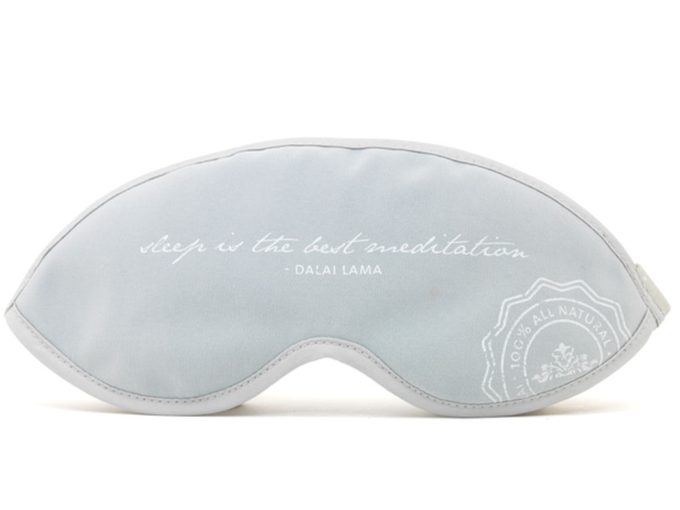The Trick to Falling Asleep—and Staying Asleep All Night

Drift off to dreamland, without the use of sleeping pills. Meditation can get you to la-la-land, pronto.
You know how it goes: You are yawning when you change into pyjamas and can barely keep your eyes open when you apply your overnight face mask. But once your head hits the pillow, your mind shifts into overdrive and you can’t fall asleep.
“It’s one of the most common complaints we hear from our clients,” says Sarah Webb, co-owner of Modern + Mindful, a mobile meditation company in Calgary. “They can’t fall sleep or wake up at 3 a.m. with a racing mind and it takes them two hours to get back to sleep.”
There are, of course, some serious health issues associated with not getting enough zzzs. Impaired memory, poor decision-making skills, stress and an increased risk of diabetes, heart disease and other chronic illnesses are just a few of the pitfalls of having an ongoing sleep problem.
But the answer could be as simple as taking just a few deep breaths. Regular meditation has been shown to improve both quality and quantity of sleep. According to research published in the Journal of the American Medical Association, learning mindful meditation can significantly improve the sleep of middle-aged people who suffer from insomnia.
After just four to six weeks of daily meditation (and as little as 10 minutes a day), Webb says her clients reported a marked improvement in their trips to dreamland. For starters, meditation helps you focus on sleep when it’s time for bed. “Meditation is a great way to fine-tune your ability to focus, and that keeps you from feeling like your mind is scattered and going in eight directions at once,” says Webb. This is helpful during the day and especially at bedtime, when you really need to zero in on relaxation so that your mind and body can rest. “Your brain will learn how to be in the present, which translates to much better sleep quality,” she says.
The counterbalance to this focus is being better able to let things go. “It’s training your mind to focus on the present moment, not future worries, past stressors or that never-ending to-do list,” says Webb. “Just use your breathing to bring your mind into the present and recognize that you’re ready to sleep.”
3 Techniques to Get You Back to Sleep at 3 A.M.
If you wake up in the middle of the night and have trouble getting back to sleep, these tricks are sure to help you nod off. Try them individually or together – when you wake up or right from the get-go at bedtime – to help you score a better night’s sleep.
1. Let your worries float away.
Visualize any thoughts that are keeping you awake as drifting away on a leaf on a river or blowing away on a cloud in the sky. “You can even try to imagine a giant hand coming into your mind, grabbing those thoughts and pushing them out,” says Webb. Different images work better for different people, so you can experiment with what works best for you.
2. Count it out.
Getting back to sleep doesn’t have to be complicated; it can be as simple as counting your breaths. “It really goes back to counting sheep as a child,” says Webb. “There’s something about the meditative, relaxing nature of counting.”
3. Have a lesson.
Some people find it helps to have some background sounds to focus on while they drift off to dreamland. You can try spa or nature sounds or follow a guided sleep meditation (or try one of these products). One we like is the Insight timer App. You can choose the length of instrumental music or meditation you’d like to listen to so that it shuts off once you doze off instead of playing all night long. Plus, if you stick to the same track every night when you’re falling asleep, this can help train your brain to get you into the sleep zone sooner, says Webb.

This eye mask contains a removable herbal insert so the scent of lavender and chamomile can lull you to sleep.
Saje eyeshade, $13, saje.com
Next, check out these natural sleep remedies that actually work.




